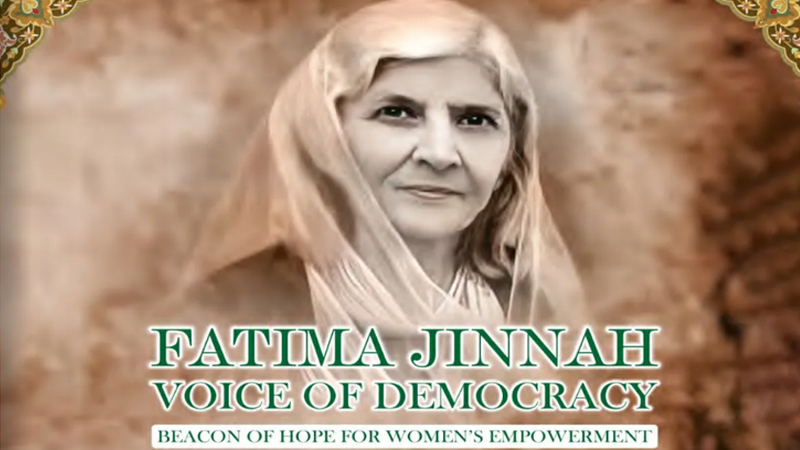Introduction
Fatima Jinnah, the sister of Muhammad Ali Jinnah, stands as one of the most pivotal figures in the history of Pakistan. Revered as the "Mother of the Nation," she played a crucial role in the struggle for Pakistan's independence. Her contributions were not only limited to supporting her brother but also extended to mobilizing women and advocating for their rights in the newly formed state. This article delves into the life, contributions, and legacy of Fatima Jinnah, highlighting her as a role model in the Pakistan Movement.
Early Life and Education
Fatima Jinnah was born on July 31, 1893, in Karachi, into a well-off merchant family. She was the youngest of seven siblings. Her early education set the foundation for her future endeavors. She attended Bandra Convent in Bombay, and later in 1923, she went to study dentistry at the University of Calcutta. This was a remarkable achievement during a time when women's education was not prioritized in the Indian subcontinent. Her determination to pursue higher education reflected her progressive mindset and strong will, characteristics that would define her role in the Pakistan Movement.
Joining the Freedom Struggle
Fatima Jinnah's involvement in the freedom struggle began earnestly in the 1930s when she started to support her brother, Muhammad Ali Jinnah, in his political endeavors. Her role was multifaceted: she acted as a confidante, advisor, and supporter, helping her brother navigate the complex political landscape of British India. She was present during critical moments, providing emotional and strategic support to Jinnah, who was leading the demand for a separate Muslim state.
Mobilizing Women for the Cause
One of Fatima Jinnah's most significant contributions was her effort to mobilize women for the Pakistan Movement. She recognized the importance of women's participation in the struggle and worked tirelessly to encourage their involvement. In 1947, she organized the All India Muslim Women's Students Federation, which played a crucial role in galvanizing support for the Muslim League's cause. Her speeches and public appearances inspired countless women to join the movement, breaking societal norms and stepping into the public sphere.
Fatima Jinnah's Political Vision
Fatima Jinnah shared her brother's vision for Pakistan as a democratic, progressive, and inclusive state. She advocated for the rights of minorities and women, emphasizing the need for their active participation in nation-building. Her vision was not limited to political independence but extended to social justice and equality. She believed in a Pakistan where every citizen, regardless of gender or religion, could contribute to the country's development.
Challenges and Struggles
Despite her significant contributions, Fatima Jinnah faced numerous challenges. As a woman in a male-dominated society, she often encountered resistance and criticism. However, her resolve remained unshaken. She continued to work alongside her brother, undeterred by the obstacles in her path. Her perseverance and commitment to the cause were instrumental in keeping the momentum of the Pakistan Movement alive.
Role in Post-Independence Pakistan
After the creation of Pakistan in 1947, Fatima Jinnah's role did not diminish. She continued to advocate for the principles she and her brother had fought for. Her most notable political involvement came in 1965 when she contested the presidential elections against General Ayub Khan. Despite the challenges and a highly controlled political environment, her participation was a significant step towards democratic governance in Pakistan. Though she did not win, her campaign galvanized public opinion and highlighted the need for democratic processes.
Legacy and Impact
Fatima Jinnah's legacy is profound and multifaceted. She is remembered not only for her role in the independence movement but also for her unwavering commitment to democracy and social justice. Her efforts in mobilizing women have had a lasting impact on Pakistani society. Today, women in Pakistan continue to draw inspiration from her courage and leadership.
Her contributions are commemorated in various ways across the country. Numerous institutions, including hospitals and educational establishments, bear her name, serving as a reminder of her dedication to public service. Her life and work are taught in schools, ensuring that future generations recognize and appreciate her role in the nation's history.
Fatima Jinnah as a Role Model
Fatima Jinnah's life offers numerous lessons for contemporary society. Her dedication to education, her active involvement in politics, and her advocacy for women's rights are all aspects that continue to resonate today. She exemplifies the importance of resilience and determination in the face of adversity. Her ability to balance her professional career with her political commitments serves as an inspiration for women striving to make a difference in various fields.
Moreover, her emphasis on democratic values and social justice remains relevant in today's political discourse. Her vision for an inclusive and progressive Pakistan is a goal that continues to guide the nation's aspirations. As a role model, Fatima Jinnah's life encourages individuals to actively participate in their communities and work towards a fair and just society.
Fatima Jinnah's contributions to the Pakistan Movement and her enduring legacy make her a role model for generations. Her life is a testament to the power of perseverance, dedication, and the unwavering pursuit of justice. As Pakistan continues to evolve, the values and principles she championed remain crucial in shaping the nation's future. Fatima Jinnah's story is not just a chapter in history but an ongoing source of inspiration for all who seek to make a positive impact in their communities and beyond.


